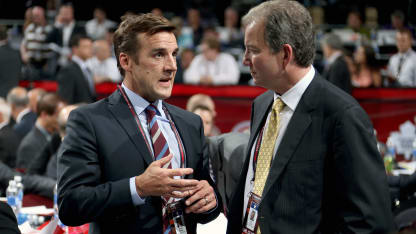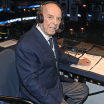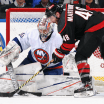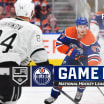The GMs were shown 14 clips of plays that involved a coach's challenge for goaltender interference. On at least some plays, there was disagreement as to whether the goal should or shouldn't count.
"You're always going to have that element of judgment because goaltender interference inherently is a judgment call," Winnipeg Jets GM Kevin Cheveldayoff said. "The constant conversation is always there to try to make it better. That's obviously what we spent a lot of time on today, talking about it. Will there ever be a conclusion? I don't know that you'll ever have a conclusion to a judgment call. I think you have to define the criteria, feel comfortable with the criteria and then in the end accept the judgment call."
The GMs discussed a change to have all final decisions on video review be made by the Hockey Operations personnel in the Situation Room in Toronto. The referees currently have the final say on reviews for goaltender interference.
However, Kris King, the NHL's senior vice president of hockey operations, said four of the 170 reviews for goaltender interference this season would have had a different outcome if the Situation Room had final say.
"It's not really a problem from our side because for the rest of those we're seeing the same thing," King said. "The referees are looking at the replays, they're taking our direction, asking us for our opinion but we're also following the rules of how it's written out where they get the final call. So, in those [four], maybe we would have liked them to change, but they didn't."


















